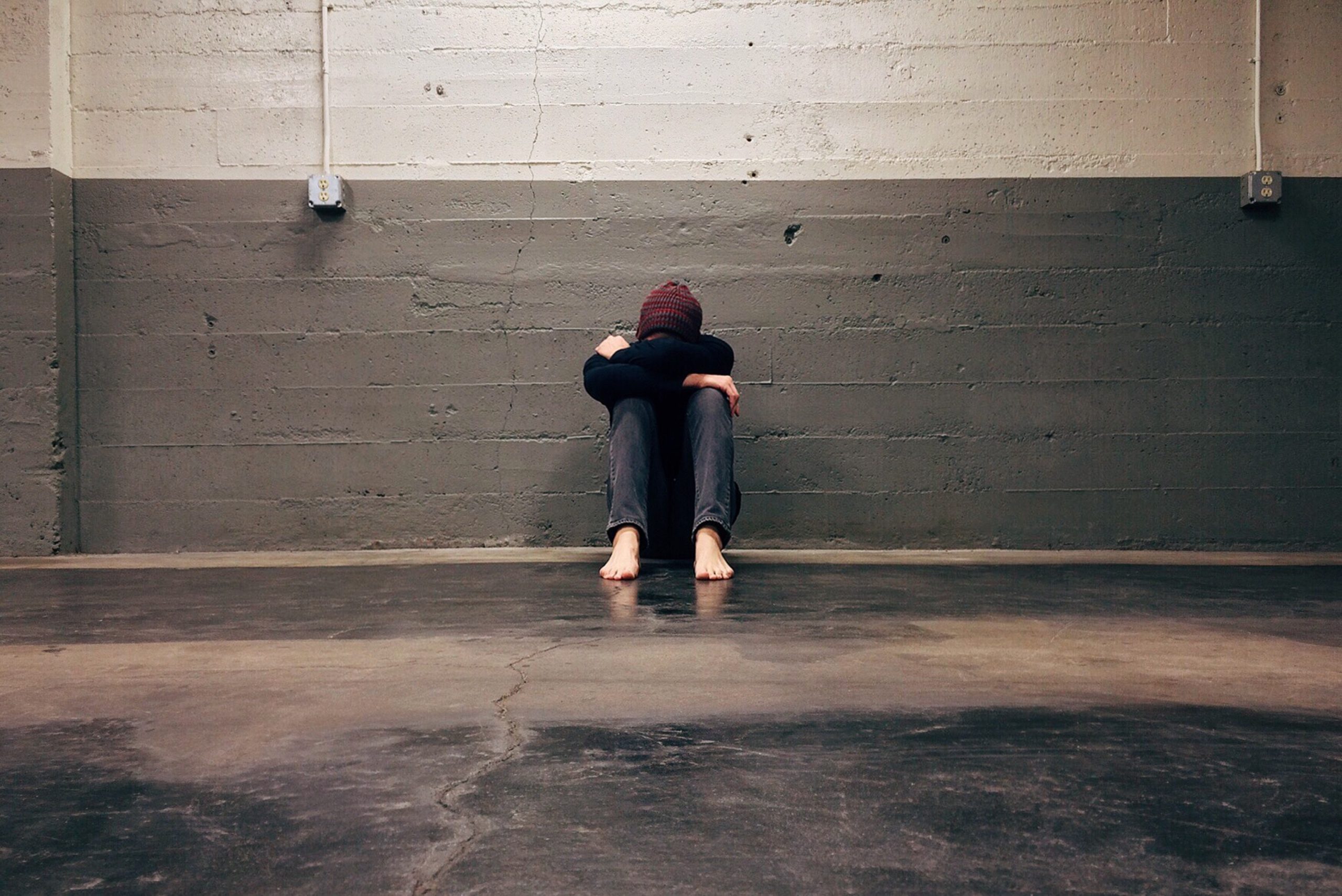In recent years, there has been a growing concern over the rise of depression among young adults in India. With a significant percentage of the Indian population falling within the age group of 15 to 24 years, this issue demands urgent attention. Depression is a global health concern, and according to the World Health Organization, it is predicted to be the leading cause of disability by 2030. In India, recent studies indicate prevalence rates ranging from 31% to 57% among young people, highlighting the need to address mental health challenges among this demographic. This blog aims to delve deeper into the factors contributing to the rise of depression and discuss potential solutions for mitigating its impact.
Understanding the Factors
Cultural and Contextual Influences: The prevalence and symptoms of depression in Indian youth can vary due to cultural and contextual factors. Norms surrounding emotional expression, social and economic stressors, and societal expectations can influence the manifestation of depression in different populations.
Genetic, Biological, and Environmental Factors: Depression can stem from various factors, including genetic predispositions, alterations in brain chemistry, academic pressure, parental expectations, exposure to stress or trauma, social isolation, family conflicts, and economic hardship. These factors interact with each other, leading to increased vulnerability to depression among young adults.
Academic Pressure: One significant factor contributing to depression among Indian youth is the intense pressure to succeed academically. Parents often place immense importance on their children’s education, leading to heightened competition for prestigious universities and high-paying jobs. The resulting anxiety and stress can have detrimental effects on mental health.
Impact of Social Media: Social media platforms have become an integral part of the lives of young people in India. However, excessive use and constant comparison to others can lead to feelings of inadequacy, low self-esteem, loneliness, and depression. The curated and filtered portrayal of others’ lives can contribute to unrealistic expectations and negative self-perception.
Changing Societal Norms: As India transitions towards modernity, young adults face a clash between traditional expectations and individual aspirations. The pressure to conform to traditional gender roles while striving for personal fulfilment can lead to frustration and depression.
The Role of the COVID-19 Pandemic
The COVID-19 pandemic has exacerbated mental health challenges faced by young people worldwide, including in India. Disruptions to routines, social connections, and education have led to increased stress, anxiety, and depression. The impact of the pandemic on young adults’ mental health must be addressed effectively to prevent long-term consequences.
Addressing the Issue
Creating Awareness and Education: Greater awareness and education about mental health issues, particularly among young adults, are crucial. Promoting open discussions, mental health literacy, and reducing the stigma associated with seeking help for mental health problems can encourage individuals to seek support when needed.
Accessible and Affordable Mental Health Services: Governments, healthcare providers, and communities should prioritize mental health and ensure the availability of accessible and affordable mental health services and resources. This includes increasing the number of mental health professionals, establishing helplines and support networks, and integrating mental health into primary healthcare systems.
Early Intervention and Support: Early intervention is key to improving mental health outcomes. Identifying signs of depression, providing appropriate support, and offering timely interventions can make a significant difference in the lives of young adults. This can be achieved through school-based mental health programs, community initiatives, and targeted interventions.
Collaboration and Research: Continued research on depression in youth is essential for better understanding its causes, profiles, and effective prevention and remedial strategies. Collaborative efforts between researchers, healthcare professionals, policymakers, and community organizations can help develop evidence-based interventions and policies.
Peer Pressure and Comparison: Alongside academic pressure, young adults in India also face significant peer pressure and constant comparison. In a highly competitive society, the pressure to meet societal expectations and achieve certain milestones can lead to feelings of inadequacy and self-doubt. Comparing oneself to others’ accomplishments and successes can further contribute to depression among young adults.
Lack of Emotional Support: Traditional cultural norms in India often discourage open discussions about mental health and emotions. Young adults may find it challenging to express their feelings or seek emotional support from their families or communities. This lack of emotional support can isolate individuals and exacerbate their depression.
Limited Access to Mental Health Resources: Despite the growing awareness of mental health issues, access to mental health resources in India remains limited, especially in rural areas. The scarcity of mental health professionals, long waiting periods for appointments, and the cost of treatment can deter young adults from seeking help for their depression.
Educational System: The Indian education system places a heavy emphasis on academic achievement and rote learning, leaving little room for creativity and personal growth. The rigid structure and high-stakes exams can contribute to stress, anxiety, and a sense of hopelessness among young adults, increasing their vulnerability to depression.
Substance Abuse: In some cases, young adults may turn to substance abuse as a coping mechanism for their depression. Alcohol and drug abuse can further worsen mental health conditions and lead to a vicious cycle of addiction and depressive symptoms.
Lack of Awareness and Understanding: Despite efforts to raise awareness about mental health, there is still a lack of understanding and knowledge about depression in society. This can result in misconceptions, stereotypes, and stigmatization of individuals suffering from depression, hindering their access to support and treatment.
Supportive Environments: Creating supportive environments within families, schools, workplaces, and communities is crucial for addressing depression among young adults. Cultivating a culture of empathy, understanding, and acceptance can provide a sense of belonging and support, reducing the impact of depression.
Financial Stress: Economic challenges and financial instability can significantly impact the mental health of young adults. The pressure to secure stable employment, manage student loans, and meet financial obligations can contribute to feelings of anxiety, hopelessness, and depression.
Lack of Supportive Social Networks: Building and maintaining supportive social networks is crucial for mental well-being. However, young adults in India may face difficulties in forming strong social connections due to factors such as urbanization, migration, and the fast-paced lifestyle. The absence of a strong support system can increase feelings of isolation and contribute to depression.
Gender-related Issues: Gender disparities and gender-based violence can have a profound impact on the mental health of young adults, particularly among women. Discrimination, societal expectations, and limited opportunities can lead to feelings of worthlessness, powerlessness, and depression.
Inadequate Mental Health Education: Mental health education is often lacking in the curriculum of schools and colleges in India. Young adults may lack the necessary knowledge and skills to identify signs of depression or seek appropriate help. Integrating mental health education into educational institutions can help promote early intervention and support.
Limited Insurance Coverage: Inadequate insurance coverage for mental health treatments poses a significant barrier to accessing necessary care. Young adults may be deterred from seeking professional help due to high out-of-pocket expenses. Expanding insurance coverage for mental health services can ensure affordability and increase treatment accessibility.
Employment-related Stress: The job market in India is highly competitive and can be challenging for young adults. The pressure to secure employment, perform well in the workplace, and navigate professional challenges can contribute to stress and anxiety, increasing the risk of depression.
Cultural Beliefs and Myths: Cultural beliefs and myths surrounding mental health can hinder the recognition and acceptance of depression. Misconceptions such as considering depression as a personal weakness or punishment can discourage individuals from seeking help and perpetuate stigma. Promoting culturally sensitive mental health campaigns and debunking myths can help dispel misconceptions and encourage seeking support.
Family Dynamics and Interpersonal Relationships: Difficulties within family dynamics, such as conflict, abuse, or strained relationships, can significantly impact the mental health of young adults. Unhealthy family environments can contribute to feelings of stress, anxiety, and depression. Strengthening family support systems and promoting healthy communication can provide a protective factor against depression.
Conclusion:
The rise of depression among young adults in India is a pressing issue that requires immediate attention and action. Factors such as academic pressure, social media influence, changing societal norms, the impact of the COVID-19 pandemic, and a lack of mental health resources have contributed to the increasing prevalence of depression in this demographic. To effectively address this crisis and support the mental well-being of young adults, a comprehensive and multi-faceted approach is needed.
Firstly, raising awareness and understanding about mental health is crucial. Efforts should be made to educate the public, including young adults themselves, about the signs, symptoms, and impact of depression. By promoting open discussions, mental health literacy, and dispelling myths and misconceptions, individuals will be better equipped to recognize and address their mental health concerns.
Secondly, there is a critical need to improve the accessibility and affordability of mental health services and resources. Governments, healthcare providers, and communities must prioritize mental health and allocate resources to establish more mental health facilities, increase the number of mental health professionals, and ensure that treatment options are accessible to all, including those in rural areas. Additionally, integrating mental health into the primary healthcare system and expanding insurance coverage for mental health treatments can significantly reduce barriers to accessing care.
Furthermore, it is essential to foster supportive environments that promote mental well-being. This includes creating safe spaces in educational institutions, workplaces, and communities where young adults can openly discuss their mental health challenges without fear of judgment or stigma. Educational reforms should focus on holistic approaches to learning, prioritizing mental well-being, and reducing academic pressure. Additionally, support networks and peer support programs should be established to provide young adults with a sense of belonging and emotional support.
Addressing the cultural and societal factors that contribute to depression is also crucial. Challenging traditional gender roles and promoting gender equality can help alleviate the pressure and expectations placed on young adults. Cultural beliefs and myths surrounding mental health should be addressed through culturally sensitive mental health campaigns and education to dispel misconceptions and reduce stigma.
The COVID-19 pandemic has further highlighted the importance of prioritizing mental health support for young adults. It is crucial to invest in comprehensive post-pandemic recovery plans that prioritize mental health services, address the emotional impact of the crisis, and provide the necessary support to rebuild disrupted lives.
Finally, continued research on depression in young adults is essential. By understanding the complex interplay of genetic, biological, environmental, and social factors, researchers can develop more targeted prevention and intervention strategies. Collaborative efforts between researchers, healthcare professionals, policymakers, and community organizations are needed to gather data, share best practices, and develop evidence-based solutions.
In conclusion, addressing the rise of depression among young adults in India requires a holistic and collaborative approach. By raising awareness, improving access to mental health services, fostering supportive environments, challenging societal norms, and promoting research, we can create a society that prioritizes mental well-being. Governments, healthcare providers, families, and communities must come together to ensure that young adults have the necessary resources and support to thrive mentally and emotionally. By investing in the mental health of young adults today, we can pave the way for a healthier and happier future for generations to come.








0 Comments